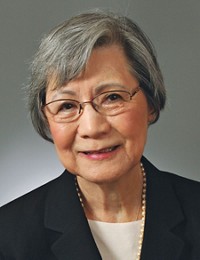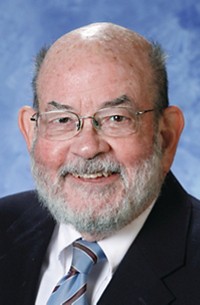Advertisement
Grab your lab coat. Let's get started
Welcome!
Welcome!
Create an account below to get 6 C&EN articles per month, receive newsletters and more - all free.
It seems this is your first time logging in online. Please enter the following information to continue.
As an ACS member you automatically get access to this site. All we need is few more details to create your reading experience.
Not you? Sign in with a different account.
Not you? Sign in with a different account.
ERROR 1
ERROR 1
ERROR 2
ERROR 2
ERROR 2
ERROR 2
ERROR 2
Password and Confirm password must match.
If you have an ACS member number, please enter it here so we can link this account to your membership. (optional)
ERROR 2
ACS values your privacy. By submitting your information, you are gaining access to C&EN and subscribing to our weekly newsletter. We use the information you provide to make your reading experience better, and we will never sell your data to third party members.
Careers
George C. Pimentel Award in Chemical Education
February 5, 2007
| A version of this story appeared in
Volume 85, Issue 6
Sponsored by Rohm and Haas
A. Truman Schwartz found what would become his true calling three years after he received a Ph.D. in physical chemistry from Massachusetts Institute of Technology in 1963. He spent those first three years as a research chemist at Procter & Gamble in Cincinnati. Then, he joined Macalester College, in St. Paul, Minn., as an assistant professor, teaching general and physical chemistry.
"I certainly do not regret my time in industry," the Dewitt Wallace Emeritus Professor of Chemistry says. "At P&G, I enjoyed stimulating colleagues, state-of-the-art research equipment, excellent support, and a higher salary than I received after I made the shift to academia. But the itch to share my knowledge and love of chemistry with bright young people and to have more degrees of freedom became too strong to ignore. So I left one 'ivory' tower for another."
At Macalester, Schwartz "hit the ground running," fellow emeritus professor of chemistry Wayne C. Wolsey says. According to Wolsey, Schwartz immediately established himself as a gifted chemistry lecturer while also emerging as a leader of an interdisciplinary course called "Man and His World." "He established a strong rapport with the humanities faculty members, which led to the team-teaching of several interdisciplinary courses," Wolsey says.
Wolsey notes that after only nine years at the college, Schwartz was selected as dean of the faculty at a time when Macalester was in the midst of a severe financial crisis. Wolsey says some older faculty have called Schwartz "our best dean in the past 30-year period, even while recalling the faculty salary cuts that were necessitated."
Schwartz's influence extends beyond his own classroom. According to Wolsey, Schwartz is a prolific writer who has had an enormous impact on the greater chemical education community and beyond. "Truman has maintained an incredibly high level of activity," Wolsey says. "He has written journal articles on chemical history, pedagogy, the basis of chemistry as a liberal art, provocative opinions, insightful book reviews, as well as books."
Schwartz was the lead author and editor for the first two editions of the ACS-sponsored textbook "Chemistry in Context," which, Wolsey says, is having a major impact on nonscience students taking this course to meet their college requirement. And Wolsey notes that the National Science Foundation-funded modular chemistry approach used by the ChemLinks and Modular Chemistry consortia benefited from Schwartz's editorial talents.
Schwartz has reached out in other ways. Lois Fruen, a chemistry teacher at Breck School, in Minneapolis, and a past recipient of the James Bryant Conant Award in High School Chemistry Teaching, says, "I can think of no other chemistry professor who is so deserving of this prestigious award. Truman Schwartz has served as a mentor for countless science teachers, he is very involved in professional activities and organizations, he is a leader in science education, and he is an extremely creative teacher."
Schwartz also got Fruen involved professionally, inviting her to speak at a National Academy of Sciences meeting and to coauthor a chapter for the "Source Book for Chemistry Teachers" and encouraging her to serve on the membership committee of the ACS Division of Chemical Education. "Without his support and encouragement," she says, "I would not be as active in science education as I am today. He is my mentor in teaching as well as in promoting science education."
Now retired, Schwartz, 72, sums up his philosophy as only a physical chemist can: "I am convinced that the secret of a rich, rewarding career (and life) is to maximize the overlap integral between the wave function that represents what you are expected to do and the wave function for what you want to do. My faculty position in an excellent liberal arts college has permitted just that. If learning something new is the greatest human high, communicating that knowledge is a close second. I have no doubt that what I have been doing for the past 40 years is important, and I believe, for the most part, I have done it well. One cannot experience or expect greater satisfaction."
The award address will be presented before the Division of Chemical Education.
- 2007 ACS National Award Winners
- Banerjee and Verdine, Brown, Gellman, Leibler, Münck, Schwartz, Stang, Stevenson, and Uneyama.
- AAAS Fellows at ACS
- More Awards





Join the conversation
Contact the reporter
Submit a Letter to the Editor for publication
Engage with us on Twitter